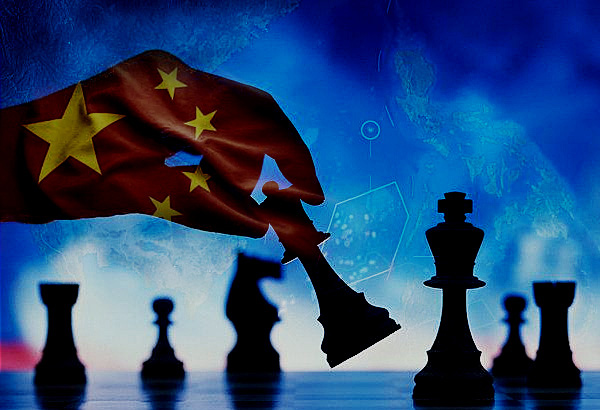Commentary: Facing 21st century security challenges in Philippines

An important task for every state in the 21st century global society is to formulate, publish and release two public documents—the National Security Policy (NSP) and the National Security Strategy (NSS).
The NSP is a government-wide analysis and examination of the strategic level concerns that a country faces at a given point in time. It serves as the official document that key decision-makers must consult to ensure a reasonable degree of coherence in their day-to day decisions and actions concerning the country’s security threats.
The NSS provides the means or the instruments on how to address the country’s main security concerns.
In the complex 21st century’s security environment, the definition of security on which both the NSP/NSS is based must now be broadened in order to be useful and politically acceptable.
The traditional and narrow notion of national security based on the military/strategic terms is now considered insufficient. Hence, the 21st century notion of security must take into account that threats, risks and challenges states face have become broader and more complex and diverse.
Traditional security threats emanating from state actors—the use of the military capability and other instruments of statecraft such as economic sanctions, political warfare and gray zone operations—are now complemented by general trends and developments in the 21st century that have adverse implications for a country’s security.
These trends include climate change, natural disasters, immigration, international terrorism and criminal organizations, and more recently, pandemics.
Traditional vs non-traditional security challenges
A month ago, the Albert Del Rosario Institute for International and Strategic Studies’ and the Bower Group Asia organized the Pilipinas Conference 2020 which featured a panel on “What are the Emerging Security Challenges in Indo-Pacific?” The said panel examined the various and complex security challenges facing the Philippines.
Prof. Mely Caballero-Anthony of the Rajartnam School of International Studies of Nanyang University in Singapore discussed non-traditional security threats (NTS).
According to her, NTS have the following characteristics: they a part of the growing list of security challenges both to states and people; they are transnational in scope; they are drivers of insecurity as result of rapid change in technology and climate change; and their growing salience vis-à-vis the traditional security challenges.
Prof. Renato Cruz De Castro of De La Salle University examined the role of the Chinese government in the cover-up of the COVID-19 outbreak in Wuhan City and its disinformation campaign on the nature of the infection that led to the global spread of the pandemic.
Mr. Bart Hogoveen of the Australian Strategic Policy Institute discussed the nature of cybersecurity. According to him, like any other forms of NTS, security in the cyberworld cannot be controlled by the states and can only be managed through multilateral efforts. He observed that the cyberworld is now an arena for the strategic competition between the U.S. and China.
Other members of the panel emphasized the continuing relevance of traditional security challenges.
Dr. Jay Batongbacal of the University of the Philippines Institute of Maritime Affairs and Law of the Sea argued that China’s off-shore strategic defense and gray zone operations in the South China Sea are preventing the Philippines from having access to the natural resources in its exclusive economic zone, in the West Philippine Sea.
Unfortunately, the COVID-19 pandemic and the series of natural disasters that hit the country have stretched the Armed Forces of the Philippines’ capabilities for territorial defense. Faced with limited resources, the Philippines’ only viable option is to strengthen its Maritime Domain Awareness capabilities and to leverage its diplomacy with its ally and security partners.
Former AFP Chief-of-Staff Emanuel Bautista examined the impact of the U.S.-China geopolitical rivalry on Philippine national security. He noted that the Philippines is a target of China’s gray zone operation because the country is a “key terrain” in Southeast Asia and an ally of the United States.
He recommended the following measures: a) the Philippines should develop its overall national capabilities, b) it should also employ a whole nation approach, c) complement the national capabilities with its alliance and security partnership, and d) engaged China in a comprehensive dialogue.
Retired Philippine Navy Rear Admiral Rommel Ong disclosed that China is threatening Philippine national security by: a) effecting sea control over the South China Sea, b) exerting efforts to threaten vital sea-lines of communication in Southeast Asia, and c) conducting gray zone operations against the country.
He offered a grand strategy of “Notional Defense Posture” for the Philippines, which includes measures to address China’s united front work; strengthen the Philippines’ sea control, island defense, sea-denial, and maritime capabilities; and foster strategic deterrence through alliance building and security partnership.
The panel on Emerging Security Challenges in Indo-Pacific has added new and fresh inputs to the current discourse on the type of security challenges the Philippines is facing in the 21st century.
This discourse will definitely influence the new administration after the 2022 presidential election in formulating its security policy and publishing the Philippines’ NSP and NSS in the third decade of the 21st century.
Renato de Castro is trustee and convenor of the National Security and East Asian Affairs Program of think tank Stratbase ADR Institute
- Latest

























